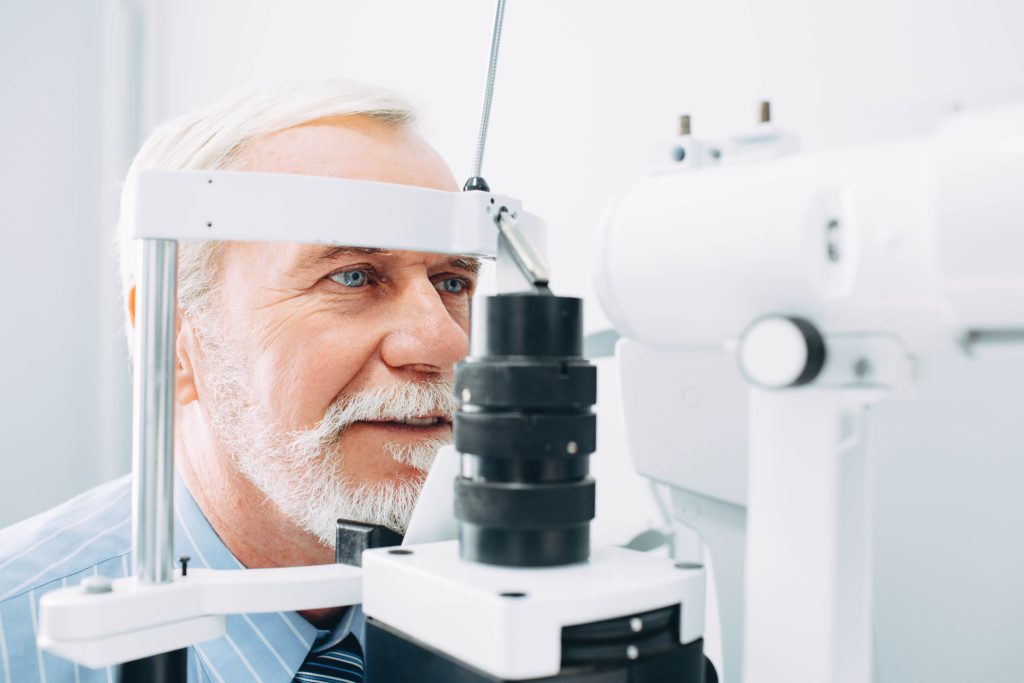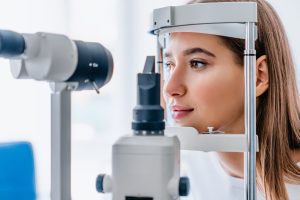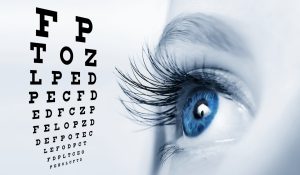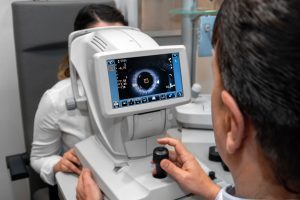How often should you have an eye exam after age 65?
After age 65, you should have an eye exam every year. It’s important to have regular eye exams because your risk for developing age-related eye diseases, such as macular degeneration and cataracts, increases with age. Seniors’ eye exams are covered by Alberta Health. Louie Eyecare Centre can help you keep your eyes healthy as you age.
Maintaining good eye health as you age is crucial
Maintaining good eye health as you age is crucial. Here are some important points to consider:
- Regular Eye Exams: After age 65, it is recommended that you have a comprehensive eye exam at least once a year. This is important for early detection and treatment of age-related eye conditions such as glaucoma, age-related macular degeneration, diabetic retinopathy, and cataracts.
- Healthy Diet: Consuming a balanced diet rich in fruits, vegetables, lean proteins, and whole grains can contribute to overall health and well-being, including eye health. Nutrients like omega-3 fatty acids, lutein, zinc, and vitamins C and E may help ward off age-related vision problems.
- Quit Smoking: Smoking increases the risk of developing several eye conditions, including cataracts and age-related macular degeneration. Quitting smoking reduces this risk.
- Physical Activity: Regular physical activity can help control systemic conditions like diabetes and high blood pressure, which can negatively impact eye health if not controlled.
- Wear Protective Eyewear: Protecting your eyes from harmful ultraviolet (UV) light is essential. Always wear sunglasses that block out 99-100% of both UVA and UVB radiation when outside during the day.
- Manage Chronic Conditions: Chronic conditions, like diabetes or high blood pressure, can lead to eye complications. It’s crucial to follow your doctor’s recommendations to manage these conditions.
- Limit Screen Time: Prolonged exposure to digital screens can cause eye strain, dryness, and discomfort, a condition often referred to as computer vision syndrome or digital eye strain. Taking regular breaks from screen time can help alleviate this.
- Sleep: Your eyes need rest to stay healthy. Make sure to get enough sleep every night.
Remember that early detection of eye diseases gives a chance for a range of treatment options and can often prevent future vision loss. Regular check-ups, a healthy lifestyle, and proper eye care can help maintain good vision and eye health as you age.

Related FAQs
Wearing glasses or contacts can indeed affect dry eye symptoms, but the impact varies. Glasses can help shield the eyes from environmental factors that exacerbate dry eye, such as wind or air conditioning. On the other hand, contact lenses can sometimes worsen dry eye symptoms by absorbing tear moisture or by causing irritation. Certain types of contact lenses are designed to be more breathable and retain moisture better, which may be suitable for people with dry eyes. It’s crucial to discuss with an eye care professional to find the most appropriate type of contact lens or glasses. Proper care and hygiene when using contacts, along with regular breaks from screen use, can help minimize dry eye symptoms.
Dry eye syndrome can be both a temporary condition and a chronic disease, depending on its cause and severity. Environmental factors or certain life situations, such as screen use or air travel can cause temporary dry eye. Chronic dry eye, on the other hand, may result from systemic diseases, medication side effects, or age-related changes in tear production. Management and treatment can alleviate symptoms, but chronic dry eye often requires ongoing therapy. It’s important to consult with an eye care professional for an accurate diagnosis and treatment plan. Understanding the underlying cause is key to determining whether dry eye syndrome will be a temporary issue or a chronic condition.
Yes, some specific exercises and therapies can help relieve dry eye symptoms. Blinking exercises, for example, can help improve meibomian gland function and tear film stability. Warm compresses applied to the eyes can also stimulate tear production and release oils from the glands in the eyelids. Gentle eyelid massages can help spread the oils evenly across the eye surface, reducing dryness. Using a humidifier to add moisture to the air and taking regular breaks to rest the eyes during screen time can also be beneficial. Newer technologies such as IPL (Intense Pulsed Light) and RF (Radio Frequency) are also becoming available. Consulting with an eye care professional for personalized advice on exercises and therapies is recommended.
Sleep plays a crucial role in managing dry eye syndrome. Poor sleep can lead to insufficient eye lubrication and worsening dry eye symptoms. During sleep, the eyes rejuvenate and produce the moisture needed for the next day. Good sleep hygiene practices can help ensure the eyes are well-rested and hydrated. It’s also important to avoid sleeping with any airflow directly hitting the face, as this can dry out the eyes. Establishing a regular, restful sleep schedule can significantly improve dry eye symptoms.
Indeed, some medications can exacerbate dry eye symptoms. Diuretics, antihistamines, antidepressants, and some blood pressure medications are known to reduce tear production or alter tear composition. It’s important to review any current medications with a healthcare provider to determine if they could be contributing to dry eye symptoms. Sometimes, alternative medications with fewer dry eye side effects can be prescribed. Always consult with a healthcare professional before making changes to medication regimens. Patients should also stay hydrated and consider using artificial tears if taking medications known to cause dryness.
Yes, it is quite common for dry eye symptoms to worsen in certain weather conditions. Dry, windy, or smoky environments can lead to increased tear evaporation, exacerbating symptoms. Conversely, high humidity can sometimes alleviate dry eye symptoms because the air is more saturated with moisture. Cold weather, especially during winter when indoor heaters are used, can also dry out the eyes. It’s advisable to use humidifiers in such conditions to maintain indoor humidity levels. Wearing wraparound glasses or protective eyewear outdoors can help shield eyes from harsh conditions.
West Edmonton Vision Clinic
Visit our vision clinic in central West Edmonton for comprehensive eye exams, contact lens fittings, glasses, and more. LL Eyecare Centre is dedicated to providing the highest quality optometric services and products to our patients. Our team of experienced optometrists is here to help you with all of your eye care needs. Schedule an appointment today!
Clinic Hours
Monday Closed
Tuesday 9:00-5:00
Wednesday 9:00-5:00
Thursday 9:00-5:00
Friday 9:00-5:00
Saturday 9:00-2:00
Closed Sunday / Holidays




